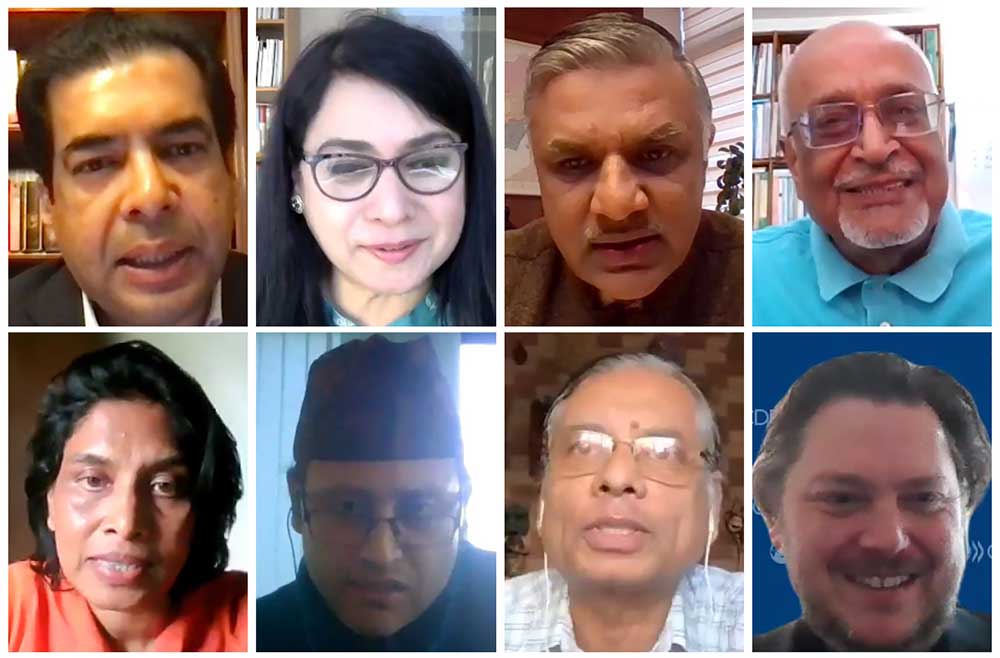
The Multilateral Development System is undergoing a significant number of challenges due to the Covid-19 pandemic, the food and energy crises triggered by Russia-Ukraine War, and climate change. This has put Multilateral organisations under pressure to optimise and diversify their funding. Although the Multilateral organisations are raising exceptional amounts of funds, there are still funding vulnerabilities. The increase in funding has also increased the funding in earmarked contributions, which grew from 13% to 16% from 2015 to 2020. There is a significant amount of discrepancy between the financial aid required by South Asian countries and the support being offered by the Multilateral Development System.
In the light of growing financing needs and constrained development budgets, avoiding overlaps and redundancies across multilateral organisations’ mandates and portfolios, ensuring complementarity between multilateral and bilateral efforts, and addressing the lack of whole-of-system accountability will be key to achieving the greatest development impact.
In this context, the Centre for Policy Dialogue (CPD) and Organisation for Economic Co-operation and Development (OECD), organised a Webinar titled “Multilateral Development Finance: Supporting an Inclusive and Sustainable Recovery in South Asia” on Friday, 2 December 2022 to launch the “Multilateral Development Finance 2022” Report. The report was Internationally launched on Monday, 28 November 2022. The issue has relevance for South Asian countries. Therefore, the event was participated by experts from South Asia.
In her welcome remarks, Dr Fahmida Khatun, Executive Director, CPD, said “This is a very timely report since the world is undergoing economic, social and environmental challenges”. To tackle these, a significant amount of funding is required. Yet, there is a huge gap between the required and available resources. Institutional reforms are also required within the Multilateral Development System which has been successfully highlighted in the report.
Mr Kazi Nabil Ahmed, MP, Member, Parliamentary Standing Committee on Ministry of Foreign Affairs, Bangladesh Parliament, said that the Multilateral Development Report is a timely report highlighting several constraints that an LDC country such as Bangladesh might face due to inadequate financial assistance. This will help Bangladesh prepare policies to withstand the challenges better if the country falls short of assistance.
Mr Olivier Cattaneo, Unit Head, Policy Analysis and Strategy, OECD, recommended in his keynote presentation that there is a need to formulate effective reforms for the growing fragmentation and complexity within the Multilateral Development System. The multilateral resources should be used strategically for the allocation in concessional and non-concessional instruments and while providing financial aid to low and middle-income countries.
Commenting on the financial support required for LDCs, Professor Sachin Chaturvedi, Director General, Research and Information System for Developing Countries (RIS), India, said “The Development Assistance Committee’s contribution and Multilateral Development System’s funding has declined in the last few years, and this will have negative implications for the graduating South Asian countries in the near future”.
Dr Nisha Arunatilake, Director of Research, Institute of Policy Studies of Sri Lanka (IPS) underscored the crises faced by Sri Lanka and said that Multilateral organizations provide assistance within a government’s development policy plan. But if these plans are not properly made, development assistance are not properly investing in areas that requires priority.
Dr Paras Kharel, Executive Director, South Asia Watch on Trade, Economics & Environment (SAWTEE), said “Nepal, Bhutan and Bangladesh, stand to lose preferential market access, policy space, and access to some concessional finance sources. The impact on aid as a whole is not going to be significant as per available data and studies. However, with all countries already in the middle-income group, if not graduation, then income-based graduation will make their access to concessional financing more difficult in the years to come.”
Dr Debapriya Bhattacharya, Distinguished Fellow, CPD, said “It is obvious to face challenges since Multilateral Development System is undergoing an anarchy growth”. He said that although the system is growing, their core funding is not increasing.
From the open floor, Dr Mustafizur Rahman, Distinguished fellow, CPD, said that since Bangladesh is going to graduate from LDC soon, the cost of funding will increase for the country. At this point, the support from Multilateral Development system has become more important, especially for withstanding the ongoing crises.
The webinar was attended by academics, experts, and researchers from think tanks in South Asia, who participated actively and shared their opinions.


